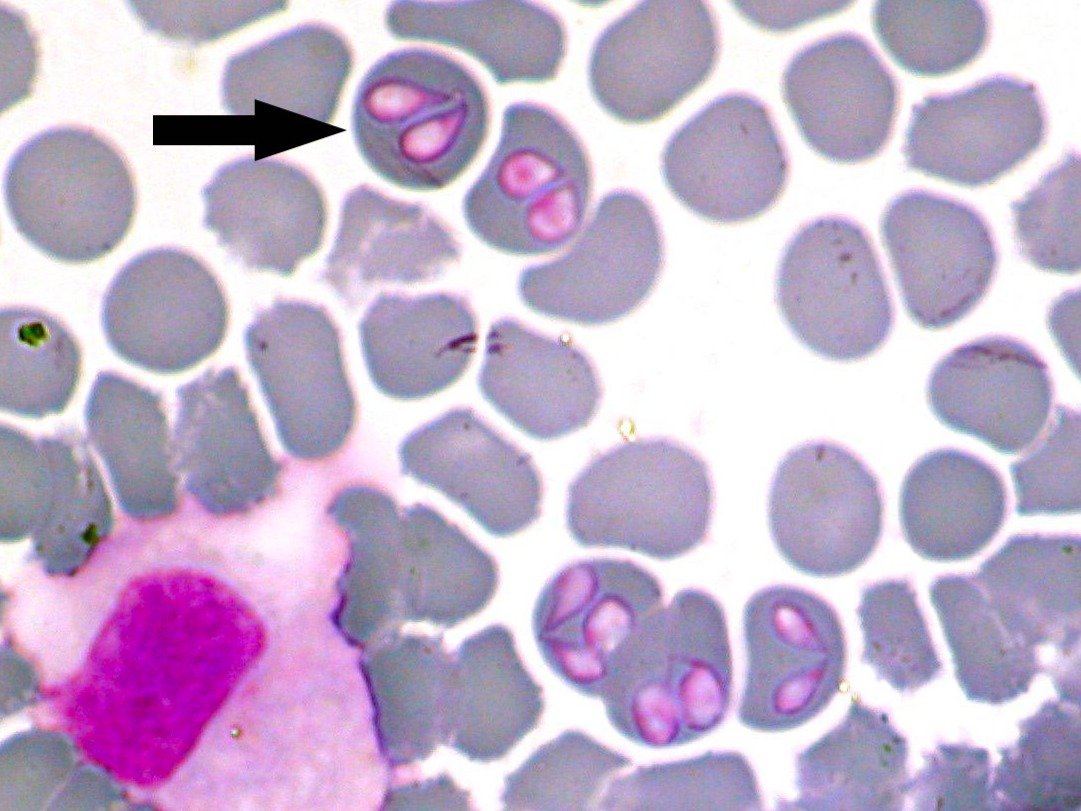Babesiosis is a zoonotic infection caused by the protozoan parasite Babesia microti. The infection is acquired by contact with Ixodes ticks carrying the parasite. The deer mouse is the animal reservoir and, overall, the epidemiology of this infection is much like that of Lyme disease. Babesiosis is most prevalent in the Northeast, Upper Midwest, and Pacific Coast of the United States.
Infectious forms (sporozoites) are injected during tick bites and the organism enters the vascular system where it infects RBCs. In this intraerythrocytic stage it becomes disseminated throughout the reticuloendothelial system. Asexual reproduction occurs in RBCs, and daughter cells (merozoites) are formed which are liberated on rupture (hemolysis) of the RBC.
Most cases of babesiosis are probably subclinical or mild, but the infection can be severe and life threatening, especially in older or asplenic patients. Fever, fatigue, malaise, headache, and other flu-like symptoms occur most commonly. In the most severe cases, hemolysis, acute respiratory distress syndrome, and shock may develop. Patients may have hepatomegaly and splenomegaly.



 Contact Us
Contact Us







 Hospitals
Hospitals
 Doctors
Doctors
 Diagnostic
Diagnostic
 Pharmacy
Pharmacy
 Health Tips
Health Tips
 Blog
Blog

























Comments